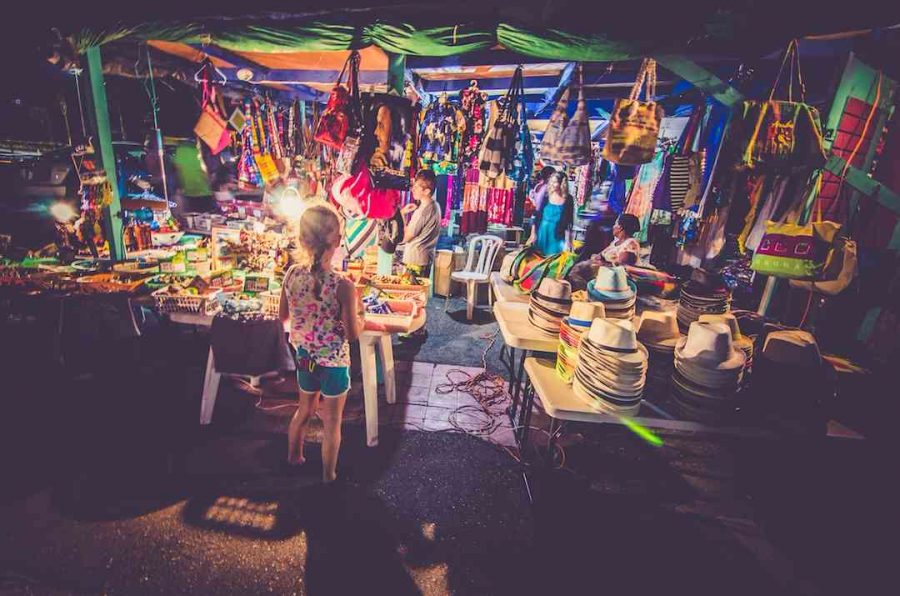When this article was first proposed to me, I was at a loss. What sort of things can I possibly suggest you bring to any country?
Each country is different! But after letting the idea incubate for a couple weeks (totally not procrastination) I eventually came up with some of my suggestions. These fall under three categories: Tech, Body, and Mind.
1. What to Bring When You Move Abroad – Tech (Sort out the voltage, your international data plan, language apps and more)

I don’t know you, and I don’t know your needs. What I can be sure about is that you likely need electricity. This would be the first hurdle to clear in your prospective new country: what is the electrical output of their sockets, and what shape are their plugs? For a fairly comprehensive list of countries and their plug type I always consult worldstandards.
You should be able to find a (near) universal plug converter, and if you’re really set on bringing your own stuff with you, you can find a voltage converter. There are dedicated plug converters that’ll go from only one type to another, which can suit your needs if you’re staying put. I was lucky enough to stumble upon a converter when I was ill-prepared in Indonesia. It worked, but wasn’t the best quality, which is why it’s better to buy it before you go.
As for the voltage converter I bought while in China… let’s just say it had near explosive disagreement with my appliance. In general, I suggest buying the same product abroad, or switching to something low-tech when possible. This’ll also save some precious luggage weight and space.
In case you’re worrying about your laptop, phone, or tablet specifically, worry not. The adapter typically is rated for 100-240V, which should keep you covered worldwide. When in doubt, you can check the fine writing somewhere on the appliance or plug that’ll say what it’s designed for. The main things you need to worry about would be anything that doesn’t have a large adapter somewhere on the plug. Examples would be: blow dryers, hair curlers, electric shavers, and other such small appliances that you hold near your face.
Another frustrating lesson learned is that not every country uses the same bands for cellphones. My Canadian phone would barely work while in China, and then my Chinese cellphone would only get 2G while in Canada. To avoid (or at least prepare for) this, the website willmyphonework.net is indispensable for comparing carriers and phone models across countries. One final thing: be sure that your phone is unlocked.
Internet access is not uniformly free. Sometimes you won’t be able to access your beloved Google, which can include youtube, maps, and translate. One solution is a VPN, of which I’d suggest Astrill or Express VPN. Sometimes even these won’t work, and they severely limit your speeds when they do. The other, much more limited fix is to download the local language on the Google Translate app, allowing you to translate things offline. If you want to go low tech, a phrasebook can be helpful and never runs out of juice.
2. What to Bring When You Move Abroad – Body (don’t forget your immunizations, antibiotics and name brand meds)

For your body, there are a few things you should be sure to do/have before you go. The first, of course, is to see your doctor and ask what you should have to ensure you don’t suffer needlessly from something preventable. Even if you’re not American, the CDC’s guidelines for immunizations are useful, and can be found here.
I personally prepare by bringing a bottle of emergency antibiotics with me. This was after returning from Indonesia with a GI infection, and the doctor suggested I bring a spare bottle with me to China. If you’re worried about the expiration date of antibiotics, I’ve read that only liquid and insulin degrade quickly, while dry pills can last for years. Double check the shelflife of any prescriptions with your doctor.
As a baby, I was diagnosed with asthma, but have never really been affected by it. Despite that, I bring a puffer with me in case something new in the environment were to trigger an attack. These are the kinds of things you should be conscious of, even if the risk is super low. Also think about common environmental hazards. For example, If you’re going to a high altitude location, you should definitely talk to your doctor about potential risks of altitude sickness and how to deal with them.
It might also be worth investing in small packs of common over-the-counter meds, like ibuprofen, bismuth subsalicylate (pepto bismol), loperamide (imodium), melatonin (for jetlag), Dimenhydrinate (gravol), antihistamines, and acetaminophen. Sure, you will likely find them in your host country, but name brands can sometimes be rare and/or expensive, and there are a chance of forgeries.
3. What to Bring When You Move Abroad – Mind (prepare for the culture shock and pack your patience)

Then there are the intangibles I would suggest. These would include attitudes and approaches to dealing with the alien and strange.
First, I’d suggest to hold off from labelling anything as weird. If you’re western, realize that your country, too, is WEIRD: Western, Educated, Industrialized, Rich, and Democratic. It’s easy to slip sometimes, as I definitely have, but so long as you catch yourself, you’ll slowly grow accustomed.
Be prepared to engage with the experience, even though it might be very uncomfortable and intrusive. There will be small things, like the lack of personal space, and large things, like how the locals deal with conflict or foreigners. It’s all part of the package, and usually no ill intent is meant.
Bring an open attitude. Say yes to things at least once before you say no. If you’ve given it a fair shake, and it’s not for you, don’t feel pressured to go back for a second look. At least you can say you tried it – this applies for me and pig feet soup. The only time I don’t follow this is if I’m afraid that a single exposure might kill me. A personal example is the street food scorpions. Part of me wants to eat it to say I did, but part of me isn’t sure that the venom is completely inert. (Afternote: apparently cooking scorpions denatures the venom.)
Sometimes you’ll come across things that are clearly nonsense, or completely misguided. These things might be forced on you, aggressively. Before you judge, always look at your own culture and think of how many ridiculous things we also do. Stephen Covey put it best in 7 Habits of Highly Effective People: seek first to understand, then to be understood. Don’t expect the new culture to bend to you. Ask probing questions as nonjudgmentally as you can. Start with “Can you tell me more about why you do X?”
Bring lots of patience. There will be times when you feel like an incompetent child on a regular basis, at least the first few months. This can even be true if you share the native tongue. Social customs, basic functioning in society, and getting around can all be set up in ways that are strange and frustrating. If you can, ask fellow expats how they dealt with them, or bring a local friend with you for the extra help.
Traveling to a new country can be harrowing and difficult, but being prepared can transform any learning curve from a sheer cliff to a gradual slope. There will be struggles, but if you’ve got everything I mention here, then you’ll be on solid footing for adjusting to your new home. Safe travels!


